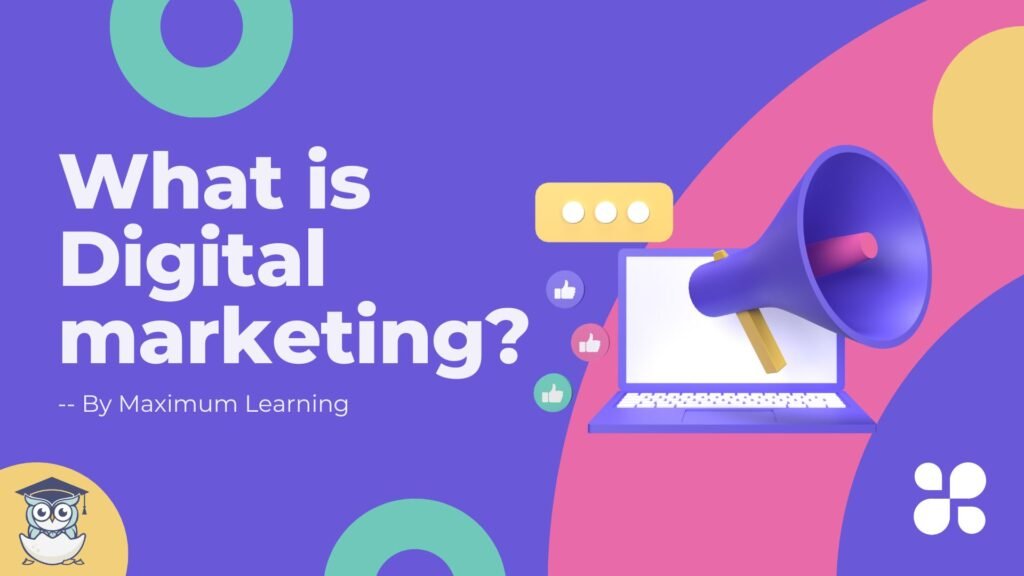Social Media Marketing (SMM) emerges as a powerful conduit for businesses of all scales to establish meaningful connections with their audience. Platforms like Facebook, Instagram, and LinkedIn have evolved into vibrant hubs where people not only discover and learn about brands but actively engage and make purchase decisions. This blog delves into the crucial role of social media in shaping contemporary business strategies, emphasizing the missed opportunities for those not present on these platforms. As we navigate through this exploration, we’ll uncover compelling narratives of businesses achieving remarkable success through effective social media marketing, fostering brand advocacy, and driving tangible outcomes in the form of leads and sales. Join us in unraveling the profound impact and strategic intricacies that position Social Media Marketing at the forefront of modern business practices.
What is social media marketing?
Social Media Marketing (SMM) is a digital marketing strategy that utilizes social media platforms to promote products, services, or brands and engage with the target audience. It involves creating and sharing content on social media networks, such as Facebook, Instagram, Twitter, LinkedIn, Pinterest, TikTok, and others, to achieve marketing and business goals. Social media marketing aims to build brand awareness, drive website traffic, generate leads, and foster customer relationships.
Key components of social media marketing include:
Content Creation: Developing and sharing relevant, valuable, and engaging content tailored to the target audience. This content may include text, images, videos, and other multimedia formats.
Audience Engagement: Actively interacting with the audience through comments, likes, shares, and direct messages. Building a community around the brand and fostering a sense of connection with the audience.
Paid Advertising: Utilizing paid advertising options offered by social media platforms to reach a larger audience and achieve specific business objectives. This can include sponsored posts, display ads, and other paid promotional methods.
Influencer Marketing: Collaborating with influencers or individuals with a significant following on social media to promote products or services. Influencer marketing leverages the influencer’s credibility and reach within a specific niche.
Analytics and Metrics: Monitoring and analyzing key performance indicators (KPIs) to assess the effectiveness of social media efforts. Metrics may include engagement rates, reach, impressions, click-through rates, and conversion rates.
Social Media Management: Using tools and platforms to schedule posts, manage content, and track social media activity efficiently. This helps streamline the social media marketing process.
Community Building: Creating a sense of community around the brand by encouraging user-generated content, responding to customer feedback, and actively participating in discussions within the online community.
Social media marketing provides businesses with the opportunity to connect with their target audience on a more personal level, gather valuable insights, and adapt marketing strategies based on real-time feedback. It is an integral part of the broader digital marketing landscape, offering a versatile and influential channel to promote products or services in today’s interconnected world.
Benefits of Social Media Marketing:
Increased Brand Awareness:
Social Media Marketing (SMM) offers unparalleled benefits in increasing brand awareness by providing businesses with a dynamic platform to reach a diverse and expansive audience, thereby enhancing visibility. Through strategic use of social media platforms, companies can showcase their distinct identity, core values, and product offerings to a global audience. This visibility extends beyond geographical constraints, allowing businesses to connect with potential customers who may have otherwise remained untapped.
By leveraging the power of compelling content, engaging visuals, and consistent brand messaging, SMM establishes a virtual presence that not only resonates with the target audience but also fosters a recognizable brand identity in the competitive digital landscape. Through the amplification of brand visibility on social media, businesses can effectively position themselves in the minds of consumers and create lasting impressions that contribute to long-term brand recognition and loyalty.
Improved Customer Engagement:
Improved customer engagement through Social Media Marketing involves creating a platform for meaningful two-way communication. By promptly responding to customer queries, comments, and feedback in real-time, businesses cultivate a sense of responsiveness and connection. This active engagement not only builds trust but also allows for direct, immediate interaction, enhancing the overall customer experience.
Targeted Advertising:
Targeted advertising in Social Media Marketing utilizes sophisticated options to pinpoint specific demographics, ensuring precise audience reach. By tailoring content to the interests and preferences of these segments, businesses maximize the impact of their advertising efforts. This precision enhances relevancy, increasing the likelihood of engagement and conversion within the desired audience.
Cost-Effective Marketing:
Social Media Marketing provides a cost-effective alternative to traditional advertising, offering businesses the ability to maximize their marketing budgets. Platforms like Facebook and Instagram, with flexible ad budgeting options, allow for targeted reach without significant upfront costs. This affordability makes SMM an accessible and efficient avenue for businesses of all sizes to promote their products or services.
Data and Analytics:
Social Media Marketing empowers businesses with detailed analytics, providing insights into campaign performance. By accessing data on metrics such as engagement, reach, and conversion rates, businesses gain a nuanced understanding of audience behavior and preferences. This knowledge informs strategic decision-making, enabling the refinement and optimization of campaigns for maximum effectiveness.
Boost Website Traffic and Conversions:
Social Media Marketing is a powerful tool to boost website traffic by strategically incorporating links into social media content. By driving users to the website, businesses create opportunities for engagement and conversions. Implementing conversion-focused strategies, such as compelling calls-to-action and targeted landing pages, optimizes the path from social media visits to customer acquisition.
Influencer Collaboration:
In Social Media Marketing, influencer collaboration involves leveraging influential individuals to enhance brand visibility. By connecting with influencers whose audience aligns with the target market, businesses tap into a trusted network. The influencers, acting as brand advocates, amplify the brand message, fostering credibility, and extending reach within their engaged and relevant follower base.
Why Market on Social Media Platforms?
Global Reach:
Social media platforms provide businesses with unparalleled global reach due to their extensive user bases. Leveraging these platforms enables companies to transcend geographical boundaries, connecting with a diverse and widespread audience. This global accessibility opens up new markets, fosters international brand recognition, and facilitates engagement with a broad spectrum of potential customers.
Diverse Audience:
Social media platforms offer businesses a diverse audience landscape by catering to distinct demographics. Each platform attracts users with unique preferences and characteristics, allowing businesses to tailor their content to specific audience segments. This diversity empowers companies to engage with a broad spectrum of individuals, fostering targeted communication and personalized marketing strategies.
SEO Benefits:
Social media signals, such as likes, shares, and comments, contribute to improved search engine rankings. Search engines consider these signals as indicators of content relevance and popularity. By maintaining an active and engaging presence on social media, businesses enhance their online visibility and increase the likelihood of achieving higher rankings in search engine results.
Competitive Edge:
Maintaining an active presence on social media is crucial for gaining a competitive edge, as consumers now expect businesses to be readily accessible on these platforms. Companies that embrace and leverage social media not only meet consumer expectations but also demonstrate adaptability and relevance, distinguishing themselves positively in the competitive market landscape.
How to Market Your Business on Social Media:
1. Define Your Goals:
Clearly outline your marketing objectives to provide strategic direction. Whether the aim is to enhance brand awareness, generate leads, or boost sales, a well-defined goal serves as the foundation for crafting a focused and effective social media marketing strategy. This clarity ensures that every subsequent step aligns with the overarching business objectives, facilitating targeted and measurable outcomes.
2. Know Your Audience:
Gain a deep understanding of your target audience by delving into their preferences, behaviors, and demographics. Conduct thorough market research to identify key characteristics and interests. This knowledge enables the tailoring of content that resonates with the specific needs and desires of your audience, fostering a more meaningful and engaging connection on social media platforms.
3. Choose the Right Platforms:
Strategically select social media platforms aligned with your target audience and business objectives. Different platforms cater to diverse demographics and content formats. Tailor your presence to where your audience is most active, whether it’s Facebook for a broad reach, Instagram for visual content, LinkedIn for professional networking, or others. Focus efforts where they yield the most impact.
4. Develop a Content Strategy:
Craft a comprehensive content strategy that reflects your brand identity and resonates with your target audience. Create engaging, informative, and visually appealing content that encourages interaction and sharing. Align your content with your brand messaging, values, and the interests of your audience, fostering a consistent and compelling narrative across your social media platforms.
5. Utilize Paid Advertising:
Harness the power of targeted advertising to expand your reach and achieve specific marketing goals. Platforms like Facebook and Instagram offer robust advertising tools that allow you to define your audience precisely. Invest strategically in paid campaigns to maximize visibility, engagement, and conversions, ensuring your content reaches a broader and more relevant audience.
6. Engage with Your Audience:
Establish a responsive and interactive relationship with your audience by promptly addressing comments, messages, and feedback. Actively participate in conversations to show authenticity and build trust. Foster a sense of community by encouraging user interaction, acknowledging contributions, and creating a welcoming space that strengthens the connection between your audience and your brand.
7. Analytics and Optimization:
Regularly monitor social media analytics to gain valuable insights into your campaign’s performance. Track key metrics such as engagement rates, reach, and conversion data. Use this information to optimize your strategy, adjusting content, posting times, and advertising efforts to align with what resonates best with your audience. Continuous optimization ensures maximum effectiveness and ROI.
Platforms:
Facebook: The Social Giant
With an impressive 2.8 billion monthly active users, Facebook stands as a social media marketing powerhouse. Maximize your impact by creating a branded hub through Facebook Pages, offering a centralized platform for business representation. Foster deeper connections by leveraging Facebook Groups to engage your audience in a community setting. Elevate your reach strategically with targeted Facebook Ads, harnessing precise audience targeting capabilities for optimal marketing outcomes. Facebook’s vast user base and versatile tools make it an essential arena for businesses aiming to thrive in the digital landscape.
Instagram: Visual Storytelling
As a platform owned by Facebook, Instagram’s emphasis on visual content makes it an ideal space for brands with visually appealing products or services. Harness the potential of Instagram Stories and Reels to deliver short-form, engaging content that captivates your audience. Streamline the purchasing process by leveraging Instagram Shopping, creating a seamless and immersive shopping experience for your audience. Instagram’s visual-centric approach provides businesses with a dynamic platform to showcase their offerings and connect with their audience in a visually compelling way.
Twitter: Real-time Conversations
Twitter, renowned for real-time conversations and trending topics, is a dynamic platform for immediate audience engagement. Strategically employ hashtags to enhance the discoverability of your content and participate in trending discussions. Actively engage with your audience through retweets, likes, and timely responses, fostering a sense of immediacy and connection. Twitter’s fast-paced environment allows businesses to stay relevant, initiate conversations, and amplify their reach in the ever-evolving social media landscape.
LinkedIn: Professional Networking
LinkedIn, the go-to platform for B2B marketing and professional networking, offers a unique space for business engagement. Share industry insights and thought leadership content to position your brand as an authoritative voice in your niche. Connect with professionals to build meaningful relationships and expand your network. Amplify your reach through targeted B2B advertising using LinkedIn Ads, leveraging precise targeting options for optimal business exposure. LinkedIn’s professional environment makes it an indispensable tool for businesses aiming to establish authority and foster connections within the B2B landscape.
Pinterest: Visual Discovery
Ideal for businesses in lifestyle, fashion, or home improvement niches, Pinterest provides a visually oriented platform for creative expression. Craft visually appealing pins to showcase your products or services and drive traffic to your website. Elevate your reach with Pinterest Ads, enhancing visibility and putting your brand in front of a receptive audience. With its emphasis on inspiration and aspiration, Pinterest is a valuable space for businesses looking to captivate audiences and drive engagement through visually compelling content.
Emerging Platforms (e.g., Clubhouse, Snapchat):
When dealing with emerging platforms, it’s crucial to explore and experiment with the latest features and trends. Stay on the cutting edge by adapting your content to the platform’s unique audience. Whether it’s diving into live audio conversations on Clubhouse or embracing augmented reality on Snapchat, understanding and incorporating innovative features helps your brand stay relevant and resonate with the evolving preferences of the platform’s user base. This adaptability and experimentation foster a dynamic and engaging presence on emerging platforms, contributing to the continued success of your social media marketing efforts.
Essentials of a Successful Social Media Strategies:

Content is King:
In the realm of social media, where “Content is King,” a successful strategy hinges on consistency, diversity, and platform-specific tailoring. Develop a content calendar for regular posting, encompassing diverse content formats like images, videos, and infographics. Tailor each piece to suit the distinct audience and features of respective platforms, ensuring optimal engagement.
Audience Engagement:
Engaging your audience is pivotal for a successful social media strategy. Actively foster two-way communication by responding to comments, likes, and shares, creating a dialogue that strengthens your connection with the audience. Implementing interactive campaigns, such as polls, Q&A sessions, and contests, stimulates participation and amplifies audience feedback. Responsiveness to messages and comments contributes to the establishment of trust, making your brand approachable and relatable in the digital landscape. This comprehensive approach to audience engagement ensures a vibrant and interactive presence that resonates with your audience.
Influencer Marketing:
Incorporating influencer marketing into your strategy proves invaluable for expanding brand reach and credibility. Collaborate strategically with influencers in your niche to tap into their engaged audience. Carefully select influencers whose followers align with your target demographic, ensuring a more relevant reach. Leverage the authenticity of influencer-generated content to provide social proof, fostering trust and credibility among your audience. This approach not only enhances visibility but also establishes a genuine connection with potential customers in the competitive digital landscape.
Analytics and Optimization:
In the dynamic landscape of social media marketing, the symbiotic relationship between analytics and optimization is paramount. Regularly analyze social media metrics to comprehensively assess the performance of your campaigns, gaining valuable insights into audience behavior and preferences. Armed with this data, optimize your strategies to prioritize approaches that resonate most effectively with your audience, ensuring continual relevance. Moreover, employ A/B testing for ads and content, systematically refining your approach based on real-time data. This data-driven iterative process is fundamental for staying adaptive and achieving sustained success in the ever-evolving realm of social media.
Paid Advertising:
Paid advertising serves as a potent amplifier for your brand’s reach, and its success lies in a strategic approach. Begin by allocating a dedicated budget to support your paid campaigns, allowing for a more expansive and impactful outreach. Harness the power of sophisticated targeting options to reach a specific audience, ensuring your content resonates with those most likely to engage. Vigilantly monitor campaign performance metrics, embracing a dynamic approach that allows you to adjust strategies in real time. This iterative process not only optimizes resource allocation but also maximizes the impact of your paid advertising efforts, contributing to the overall success of your marketing endeavors.
In conclusion, social media marketing is a powerful tool for businesses to connect with their audience, build brand awareness, and achieve marketing objectives. By understanding your audience, choosing the right platforms, and implementing effective strategies, you can harness the full potential of social media for your business. Regularly evaluate and adjust your approach to stay relevant in the ever-evolving landscape of social media marketing.




